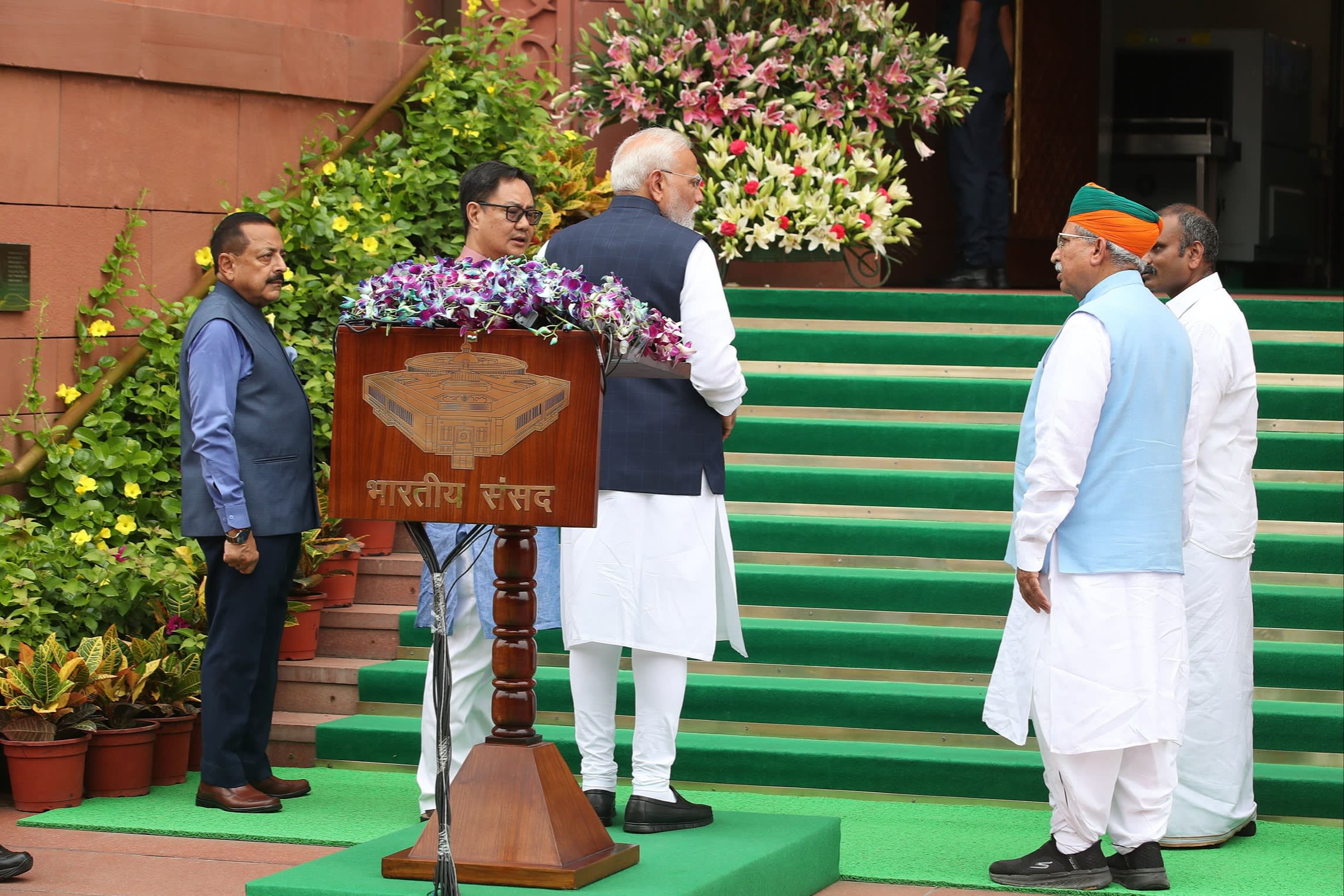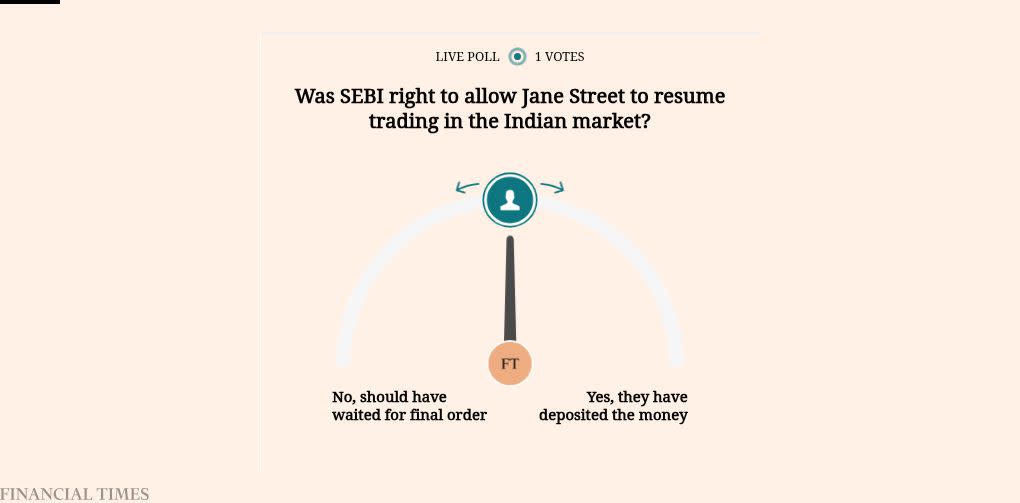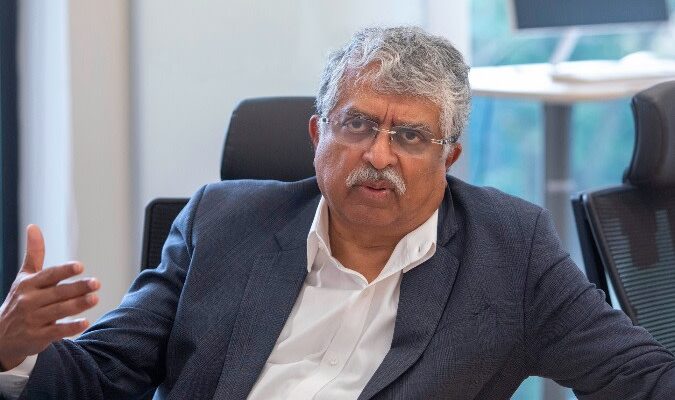Good morning. I am back after spending a week with my family in Kerala. We stayed for two days in Fort Kochi, where I was introduced to Breudher, a sweetish nutty bread that the Dutch brought with them in the 17th century. (I grew up not far away but had never heard of it before this.) I am grateful to John Reed for stepping in and writing India Business Briefing while I delighted in the discovery of new carbohydrates!
In today’s newsletter, storm clouds gather as parliament begins its monsoon session. But first, Allianz and Jio shake up the Indian insurance sector.
A new alliance for Reliance
German insurer Allianz and Ambani-owned Jio Financial Services have kicked off their relationship with a 50:50 reinsurance venture that is certain to shake up the sector in India. This is the second innings for Allianz, just months after it exited a 24-year partnership with Bajaj. At the time, I had reported that the company was likely to re-enter India through a tie-up with Jio — which Friday’s announcement has confirmed.
While Allianz has significant depth of experience and underwriting capabilities and has been a reinsurer in India for more than a quarter of a century, the Ambanis and their Reliance empire bring deep pockets and the patience to play the long game. In the past couple of years, Reliance has also managed to quickly build expertise in offering digital-first financial services products to the mass market in India. (Just before I went on vacation, I wrote about Jio’s launch of mutual fund products in its partnership with BlackRock capital.)
This is not the only private sector reinsurer given access to the market. Indian regulators granted the first such licence in March to Valueattics Re, a venture backed by Canadian-Indian businessman Prem Watsa and Kamesh Goyal, the founder of fintech insurance start-up Go Digit.
The entry of yet another player is bad news for India’s public sector reinsurer, General Insurance Company Re. Currently, GIC has more than 50 per cent of India’s Rs50bn ($650mn) reinsurance market and enjoys a 4 per cent mandatory cession, the portion of the premium collected that every general insurer has to compulsorily hand over to the reinsurer. But this is subject to an annual review by regulators, who will now have to include Valueattics and the Allianz-Jio venture.
This is just the beginning of the churn that India’s financial services sector is likely to witness, with fintech start-ups, Indian conglomerates and multinational corporations jostling for space. If private banking was the first wave and digital payments the second, the massive expansion in online brokerages, insurance providers and asset management companies is the next. Both Indian conglomerates and storied multinationals are coming in with their heavy hitters and the current landscape will be unrecognisable a decade from now. Existing players should be worried, but as a customer, I’m delighted.
Who do you think will be the biggest losers in the Indian financial services sector in the next decade? Hit reply or email me at indiabrief@ft.com
Recommended stories
Multinationals including McDonald’s and Bupa are looking to India’s back offices to fill their core AI needs.
Gita Gopinath, the IMF’s second-in-command, is set to step down.
Up and down: six months of Donald Trump’s reign, in six charts.
Apples, sausages and workers: North Korea and Russia have deepened their economic ties.
My colleagues Andres and Jyotsna take a look inside the RSS and how it is inching closer to its goal of a Hindu-first state.
Levi’s is back in fashion, writes Lex.
Storm clouds over monsoon session

“May the Monsoon Session of Parliament be productive and filled with enriching discussions,” Prime Minister Narendra Modi said in his customary message before the start of the session.
It is likely to be anything but, with the opposition primed to raise questions about several key issues, starting with what really happened to Indian warplanes during Operation Sindoor. With US President Donald Trump bringing up the matter of five jets that were shot down once again late last week, the House will seek clarity on the exact sequence of events in May, when India and Pakistan escalated military operations. Also on the docket: electoral rolls being revised in the state of Bihar — which goes to the polls later this year — and the probe into the deadly Air India crash.
The busy agenda is perhaps why there are hardly any major bills listed for discussion. The most significant one is the Income Tax bill, an attempt to update the existing act (drafted in 1961) for current economic conditions. In February it was referred to a select committee, which will now table its report. The government is also looking to update legislation around shipping and ports this session, with five related bills slated for discussion. The opposition is certain to come in all guns blazing since it is a major line of business for Gautam Adani, whose links with Modi have often been subject to scrutiny.
The prime minister himself will be travelling to London later this week, with more details about the trade agreement with the UK expected to be released. But the arguably more crucial deal with the US continues to be on a sticky wicket. If no deal is announced before the end of the month, the government will be forced to discuss its lack of progress. If there is a deal but it includes provisions on importing US agricultural goods, it will open a Pandora’s box both inside parliament and outside, with farmers certain to protest. In many ways, this monsoon session captures the zeitgeist of our times — of having to constantly put aside real reform to deal with uncertainties and catastrophes. Stand by for the fireworks.
Go figure
Extreme weather events driven by climate change are pushing short-term food price surges globally, research has found. Here are some of the worst price rises caused by heatwaves, droughts and floods.
80%
Onions in India
300%
Lettuces in Australia
55%
Coffee in Brazil
My mantra
“We can’t always make good choices, often circumstances force us to take the more difficult option. Choosing between travelling for work or spending time with the family is an example of this. The important thing is to take every road with joy and a bounce in your step. What keeps me going is the simplicity of the inspirational: It’s always good in the end; if it’s not good, it’s not the end.”
Ajit Dayal, founder, Quantum Mutual Fund

Each week, we invite a successful business leader to tell us their mantra for work and life. Want to know what your boss is thinking? Nominate them by replying to indiabrief@ft.com
Quick question
Do you think the stock market regulator was right in allowing Jane Street to resume trading in the Indian market? Tell us here.
Buzzer round
On Friday, we asked: Which class of financial instrument have insurers recently sold in record volumes to investors aiming to profit from climate change-related risks?
The answer is . . . catastrophe bonds!
Aniruddha Dutta was the first to write in with the correct answer, followed by Ram Teja, Yaman Singhania, PV Kannan and Ranjan Kumar Sinha.
Congratulations!
We have been getting great responses for Buzzer Round. If you have any ideas or suggestions on how to make it better or other ways to engage with the quiz, do write in.
Thank you for reading. India Business Briefing is edited by Tee Zhuo. Please send feedback, suggestions (and gossip) to indiabrief@ft.com.



